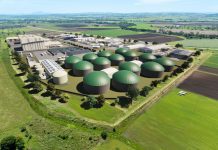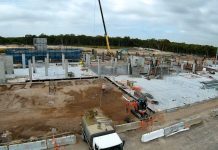
The Western Australian Government has announced it will introduce the State Development Bill 2025, a landmark piece of legislation aimed at streamlining project approvals and supporting the growth of strategic manufacturing and industrial projects across the State.
The Cook Government said the Bill will establish a modern framework to fast-track major developments, strengthen investment attraction, and secure WA’s position as a global leader in industry facilitation and regulation.
Premier Roger Cook said the legislation is central to maintaining Western Australia’s strong economic position and advancing its Made in WA agenda.
“The State Development Bill will give us the powers necessary to secure investment in major clean energy and defence manufacturing projects, which have the ability to transform the WA economy in the years ahead,” he said.
The government confirmed the Bill will enable the Premier to declare State Development Areas and Priority Projects, with support from a newly created Coordinator General, who will be tasked with coordinating approvals across agencies.
The role is expected to streamline complex processes while maintaining environmental and heritage safeguards.
The government noted the Bill builds on discussions at the Trade and Economic Resilience roundtable earlier this year and follows the government’s commitment to establish a WA Productivity Commission.
It also complements planning and environmental approval reforms implemented in the last term.
According to the WA Government, the new laws are designed to help secure manufacturing-led opportunities in clean energy, critical minerals, and defence.
These include transitioning out of coal-fired power generation, producing clean downstream products such as green iron, and establishing Western Australia as the largest naval shipbuilding and maintenance hub in the southern hemisphere.
Cook said the reforms are designed to keep WA ahead in a rapidly changing economic environment. “We want WA to be the best place in the world to do business, and the State Development Bill will help us create the regulatory environment we need to get things done,” he said.
The Coordinator General’s powers will only apply to the most significant precincts and projects, while other private sector projects will continue to be managed by the Department of Energy and Economic Diversification.
Further reforms to the approvals system are also expected in 2026.


















